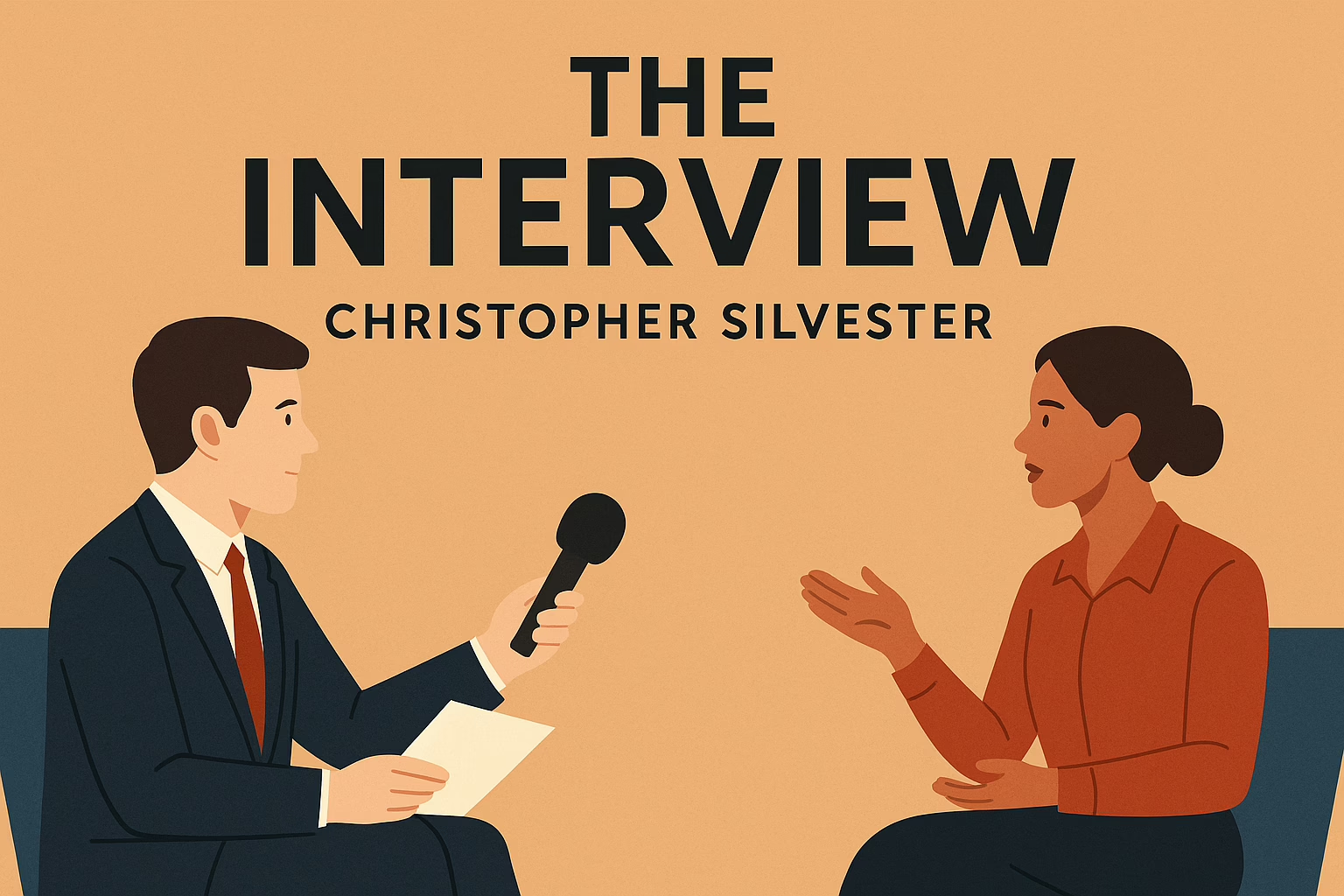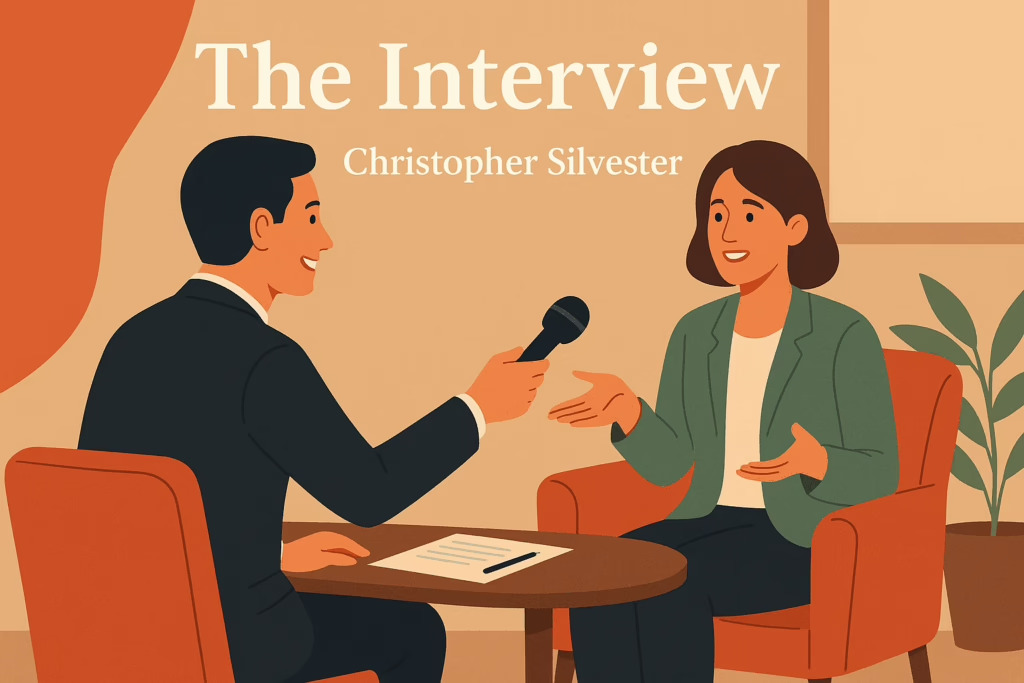Christopher Silvester’s The Interview offers a sharp and insightful exploration of one of modern journalism’s most influential forms—the interview. Through a blend of historical references, literary criticism, and real-life examples, the chapter reveals how interviews shape public perception, document the thoughts of great thinkers, and often spark debate about privacy, authenticity, and representation. Part I surveys the mixed reactions of writers and public figures toward interviews, while Part II presents Mukund Padmanabhan’s engaging conversation with Umberto Eco, whose remarkable intellect and disciplined work ethic offer valuable lessons for readers.
To help students understand this chapter deeply and prepare effectively for CBSE Higher Secondary examinations, this article includes a comprehensive selection of Additional Questions and Answers. These cover short and long responses, HOTS-based analysis, extract interpretations, and value-based reflections that strengthen conceptual understanding and exam-writing skills. By engaging with these questions, learners will gain clearer insight into the complexities of interviews and develop a nuanced appreciation of Silvester’s commentary on media, personality, and communication.
Summary of this text along with the textual questions and their answers can be found in the previous article.
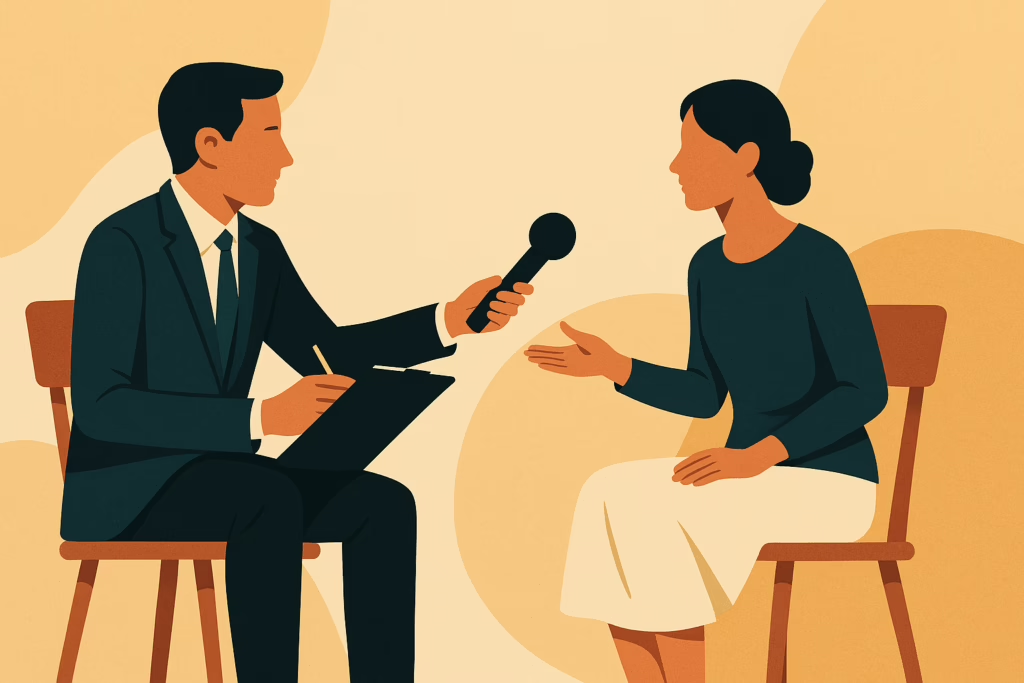
A. SHORT ANSWER QUESTIONS (2–3 marks)
1. Why does the writer say that interviews have become “a commonplace of journalism”?
Interviews have become a commonplace of journalism because modern media relies heavily on personal opinions, direct statements, and first-hand revelations from public figures, making interviews one of the most frequently used tools for news and storytelling.
2. What does the chapter reveal about the contradictory nature of interviews?
The chapter shows that interviews can be both revealing and intrusive. While they help readers understand personalities deeply, they can also cause discomfort, misrepresentation, or a sense of invasion for the person being interviewed.
3. Why did Lewis Carroll refuse to be interviewed?
Lewis Carroll refused interviews because he valued his privacy intensely. He believed interviews distorted his personality and threatened the quiet, anonymous life he preferred.
4. What was Umberto Eco’s attitude towards popularity?
Umberto Eco appeared indifferent to fame. He believed that success was unpredictable and that his primary identity remained that of an academic scholar, not a celebrity novelist.
5. What role does humour play in Eco’s responses during the interview?
Humour allows Eco to answer difficult questions without appearing defensive. It helps him explain complex ideas—like his use of “interstices”—in a light, memorable way that keeps the conversation engaging.
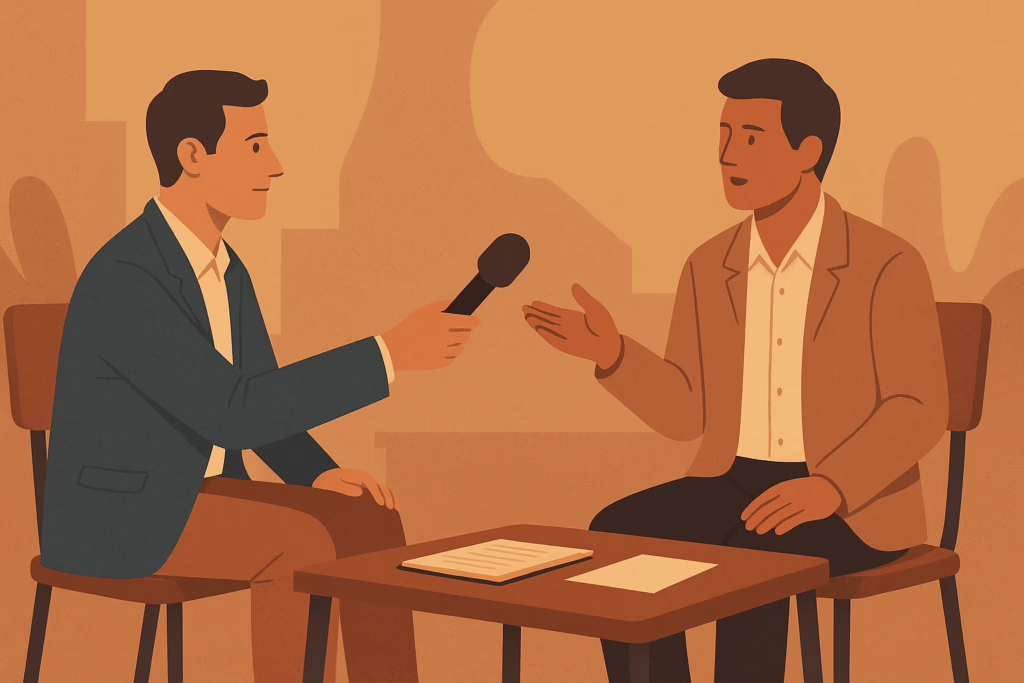
B. LONG ANSWER QUESTIONS (5–6 marks)
6. How does the chapter examine the relationship between interviews and truth?
The chapter presents interviews as a double-edged tool. On one hand, interviews are described as “a new art form,” capable of revealing truth and offering genuine insights into a personality. On the other hand, many writers argue that interviews distort truth by turning private lives into public spectacles. The narrative balances these perspectives by showing that interviews can be powerful sources of information but must be handled with sensitivity and responsibility.
7. Describe how Umberto Eco manages his multiple roles effectively.
Eco manages his various roles—scholar, essayist, novelist, and semiotician—by viewing them as interconnected parts of a single intellectual pursuit. He makes productive use of small pockets of free time, or “interstices,” which others often waste. His disciplined approach, philosophical focus, and ability to blend creativity with academic rigour enable him to excel in many fields without feeling overwhelmed.
8. Discuss the interviewer’s technique in extracting thoughtful answers from Umberto Eco.
The interviewer uses open-ended questions, listens carefully, and builds on Eco’s remarks to draw out meaningful insights. His respectful tone encourages Eco to speak freely. He also shifts topics smoothly—through signallers like “Which brings me to another question”—ensuring that the conversation remains fluid and intellectually rich.
9. How does Eco explain the unexpected success of The Name of the Rose?
Eco describes the success as an accident. He believes the timing of the book’s publication played a major role, suggesting that if it had been published earlier or later, it might not have become a bestseller. Eco dismisses the idea that authors can predict or manufacture popularity, emphasising the mysterious and unpredictable nature of public reception.
C. HOTS (Higher Order Thinking Skills)
10. What does the chapter suggest about the tension between public life and private identity?
The chapter highlights that public figures often struggle to protect their private identities. While interviews bring their thoughts to a wide audience, they also expose vulnerabilities and create pressure to present a polished image. This tension makes many writers feel misunderstood or reduced to simplified versions of themselves.
11. What does Eco’s concept of “interstices” teach modern students?
Eco’s concept teaches students that success depends on how wisely one uses small fragments of time. Instead of waiting for large blocks of free time, students can achieve a great deal by making productive use of brief intervals throughout the day.
12. Why do you think the interview remains such a powerful form of communication today?
The interview remains powerful because it lets audiences hear voices directly, witness personality traits firsthand, and observe spontaneous reactions. It also humanises public figures by showing them outside their formal work.
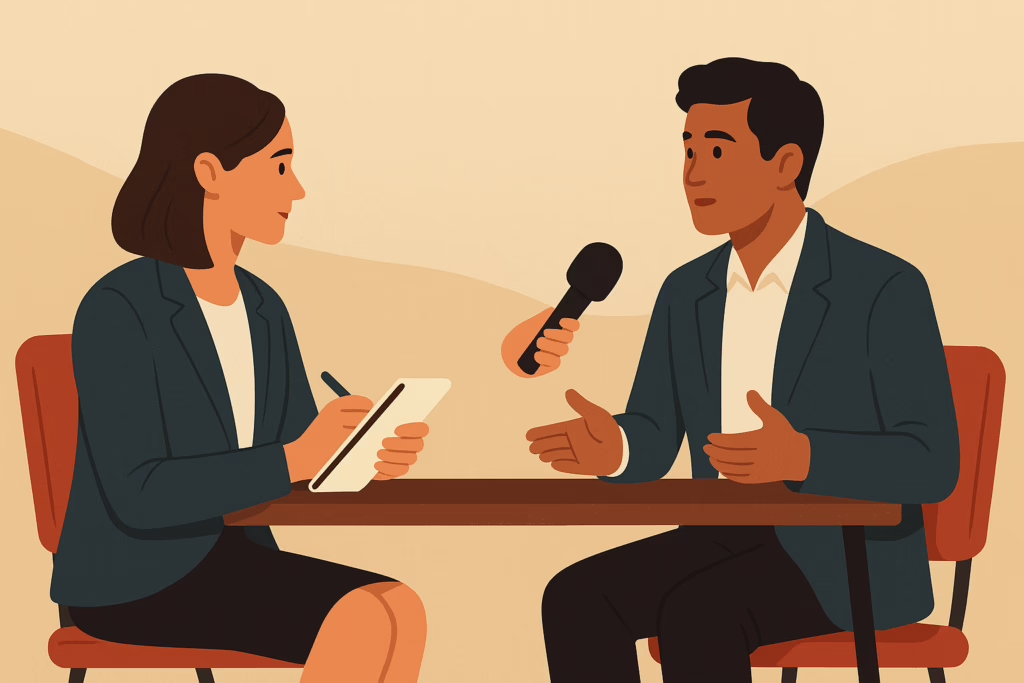
D. EXTRACT-BASED QUESTIONS
Extract 1:
“I have made a lot of stuff in my life; I am not an intellectual.”
a) Who speaks this line?
Umberto Eco speaks this line.
b) Why does he deny being an intellectual?
Eco denies being an intellectual because he sees himself primarily as someone who works practically and passionately rather than theoretically. He prefers to describe himself as a scholar and storyteller.
c) What does this reveal about his personality?
It reveals his humility and grounded self-image despite his towering achievements.
Extract 2:
“Interviews are the most serviceable medium of communication.”
a) What does “serviceable” mean here?
“Serviceable” means practical, efficient, and useful.
b) Why does the writer call interviews serviceable?
Because they allow quick, direct access to a person’s thoughts and make it easy for the public to learn about events and personalities.
c) Do all people agree with this view? Why or why not?
No. Many writers disagree because they feel interviews oversimplify or distort their identities.
E. VALUE-BASED QUESTIONS
13. What value does the chapter teach about respecting personal boundaries?
The chapter shows that even public figures deserve privacy and dignity. Interviewers must recognise emotional limits and avoid exploiting vulnerable moments.
14. Why is self-awareness important for creative individuals, according to this chapter?
Self-awareness helps writers understand which parts of themselves they wish to share publicly and which they prefer to protect. It also helps them remain grounded amid fame.
F. LONG DISCUSSION QUESTION
15. “Interviews are both a window and a mirror.” Discuss.
Interviews act as a window by giving the audience a clear view into the mind, emotions, and beliefs of a public figure. They reveal personal stories and illuminate the creative processes behind great works. At the same time, interviews act as a mirror, reflecting the subject’s vulnerabilities, insecurities, and authentic human side. This dual function makes interviews powerful but also sensitive, as they can enlighten the audience while exposing the interviewee.

